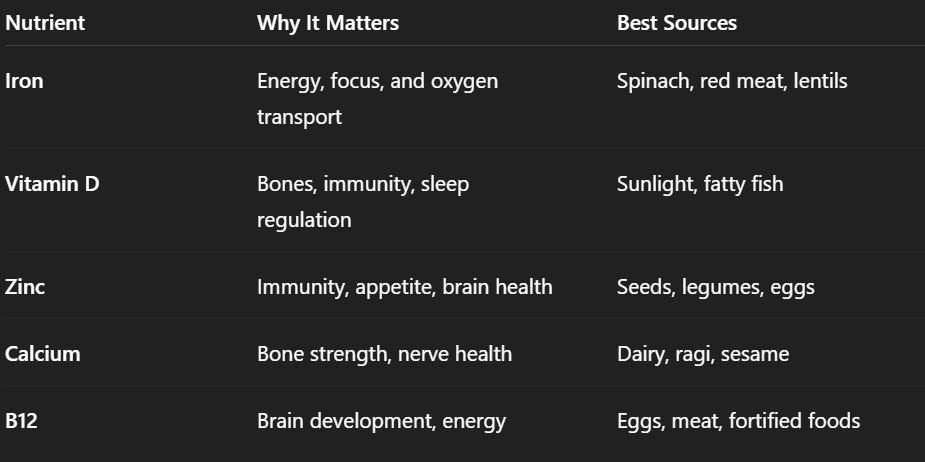Is Your Child's Health Being Silently Stunted?
Childhood is magic — full of curiosity, energy, and growth. But what if that magic is being dulled by something you can't see?
Nutrient deficiencies in children are often masked by everyday complaints like tiredness, irritability, or sleep issues — but the truth can be much deeper.
Here’s what every parent should know.
🚩 8 Early Signs Your Child Might Be Nutrient Deficient:
Delayed Speech? Could be a B12 deficiency affecting brain development.
Hair Loss? Often tied to low iron or thyroid imbalances.
Slow Wound Healing or Easy Bruising? Think vitamin C deficiency.
Constant Fatigue or Brain Fog? Possibly low in iron or B12.
Obesity but Malnourished? High-calorie, low-nutrient foods are the culprits.
Poor Sleep? Magnesium or vitamin D could be lacking.
Struggling with Night Vision? A classic sign of vitamin A deficiency.
Learning Issues or Poor Grades? Micronutrient deficits impact cognition.
🥦 Common Nutrients Kids Are Missing (and Where to Get Them)
👀 Look Out For These Physical Clues
Fatigue, pale skin, irritability, poor appetite, frequent illness, brittle nails, or delayed growth could all be signs that your child needs nutritional support.
✅ Prevention is Simpler Than You Think
Encourage a diverse, whole-food diet
Address picky eating habits gently but consistently
Don’t ignore frequent ‘minor’ symptoms
Consider supplementation when needed (especially B12, D, iron)
💬 Final Thought
In a world of fast food and screen time, real nutrition often takes a backseat. But the early years shape the rest of your child’s life — and it all starts with what’s on their plate.
If you suspect your child is not getting the right nutrients, don’t wait. The earlier you act, the better their chances of thriving physically, emotionally, and mentally.
Want to know more about every Nutrients importance for your child?
Head over to our blog -
https://www.ithrive.academy/blogs/child-nutrient-deficiency-signs-symptoms
As a parent, your child’s health is indeed a priority and with growing diseases you being concerned about some disease attacking your child is not you overreacting that is just your parental sense coming into play.



